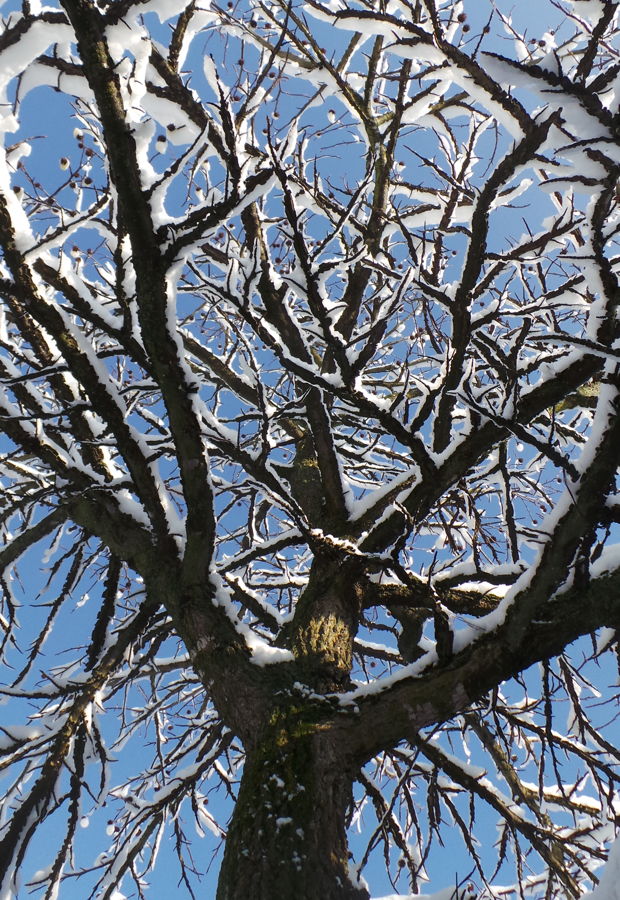“[D]o not merely look out for your own personal interests, but also for the interests of others.”
— Philippians 2:4
Often I find myself sitting across from a student in my office as the conversation moves from gerunds and infinitives, deadlines and revisions, applications and careers, to family difficulties and personal worries. I pray a lot then. If a student’s stress is greater than my listening can relieve, I gently recommend a counselor, as grateful for these professionals as I am for my equally brave friends the women mystics, their medieval counterparts. Fortunately, a listening heart is usually enough, reminding the student of God’s love. Over the years of practicing such listening, I’ve learned how much we take for granted about the lives of others.
I think if we knew just one genuine sorrow being carried by each person we meet, we would be inordinately kinder to each other, and more patient, too. But this is hard, because every one of us is carrying a sorrow that with its painful weight can at any moment close down our ability to look away from ourselves and pay attention to God, the beauty around us, and others who cross our paths. It is hard to be a human being.

So I pray to be a student of staying open to growing, and winter always teaches me how vital that is. Of course I don’t just mean those days of snow and ice that sent my Southern, cold-sweet-tea-drinking self out to buy both rock salt to melt my frozen flagstones and non-clumping cat litter to make sure my truck tires could get traction. I’m thinking of the long winters of the soul, which can be times of kenosis, from the Greek kenoo, “to empty.” Consider how a deciduous tree at its simplest — bark, bare limbs, and hidden sap — has surrendered all it doesn’t need and what could injure it, to thrive through winter’s snowy, bitter, windy days that mortally rob moisture from leaved plants or topple them when foliage becomes heavy with snow and ice.
Winter is the season of kenosis, when empty trees wait to be filled with spring’s new life. In Philippians 2, Paul describes the kenotic attitude of “self-emptying” as the Christly lifestyle: “[A]lthough Christ existed in the form of God, [he] did not consider equality with God a thing to be grasped, but emptied himself, taking the very nature of a servant, being made in human likeness” (6-7). If we empty ourselves of what separates us from others, such as arrogance and self-absorption, we can be filled with God’s grace to love each other better.
Kenosis is also a form of rest. The trees accept an inhospitable season by resting, as dormant is from the Latin dormīre, “to sleep.” I could choose to rest in Christ and not rush around panicking and trying to “fix” everything, which is always my first impulse. Too often my prayer when life is difficult is a frantic, “Let this end. Let this end.” I could stop instead and listen to my pain and not neglect it, honor it by slowing down and taking better care of myself, look out the window and consider the splendor inherent in all of nature, and see others for who they really are, fellow humans struggling and hoping for joy.
Rainer Maria Rilke in his “Tenth Elegy” recommends this wisdom of acceptance against becoming Vergeuder der Schmerzen, “squanderers of pain,” saying, “[L]et my hidden weeping arise / and blossom. How dear you will be to me then, you nights / of anguish. Why didn’t I kneel more deeply to accept you.” [Duino Elegies and the Sonnets to Orpheus, translated by Stephen Mitchell (New York: Vintage Books, 2009), pages 61, 73.]
Or, as thirteenth-century Mechthild of Magdeburg said, “God guides his children along strange paths. The path of pain is a strange path. It is also a noble path and a holy path. God himself walked it. Remember this.” (A Little Daily Wisdom by Carmen Acevedo Butcher, page 176).
If I can prayerfully accept my own pain, and rest in Christ, then I can more willingly and wisely engage with the pain others experience and rediscover (over and again) life’s ever underlying joy. This is the green of eternity running through all existence, which T. S. Eliot sings about in “Burnt Norton” as “the still point, there the dance is.”
Then I can really see others, instead of the usual daily blur. How often do we perceive others’ lives not unlike we view a winter oak — seeing a solid perpendicular trunk with large branches. We miss all those tiny twigs, passing them by without a glance.
But I can spend the few seconds it takes to look and really see the woman wearing green at Publix, swiping PLU and bar codes for hours on end to give me my bananas and milk and eggs and Pop-Tarts; the man wearing blue at the post office, standing all day to deal on a regular basis with the rudeness borne of long lines and impatience; the woman all in brown jumping down with a clipboard in hand from the massive UPS truck, running up to my porch with a cardboard box; and at my dentist’s office, the woman who, rarely leaving her post all day at the reception desk, smiles at me.
I can pray for each of these, and wonder about their lives, and ask God to bless them.